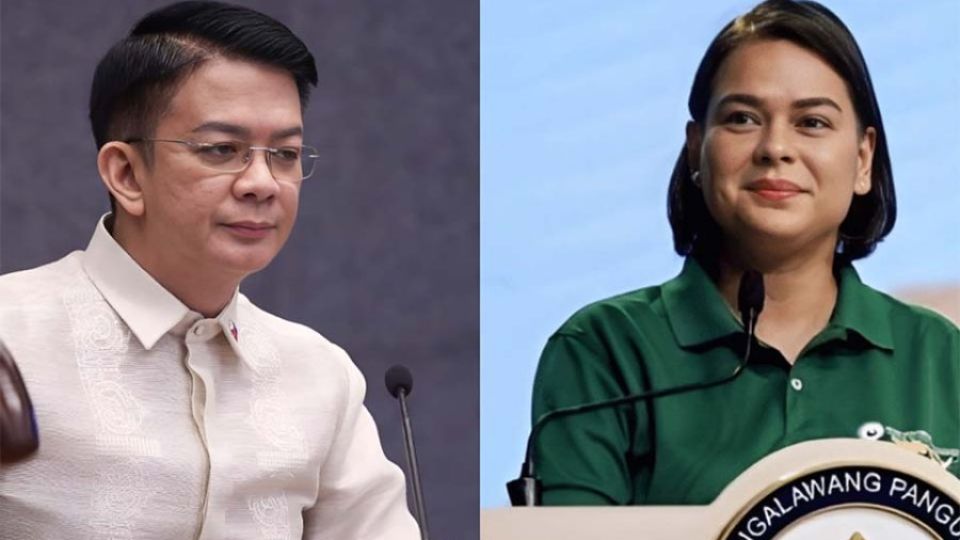February 25, 2025
MANILA – In a democracy, accountability is not just an expectation; it is an imperative. As citizens, we have placed our trust in elected officials to uphold the Constitution and adhere to the rule of law. Yet, we are witnessing an unsettling standstill in the impeachment process against Vice President Sara Duterte. Senate President Chiz Escudero’s erratic stance raises troubling questions. His apparent hesitation—or what may more aptly be described as deliberate procrastination—casts a long shadow over his credibility and threatens the integrity of our political system. Notably, he has failed to call his fellow senators, either formally or informally, for an essential caucus to discuss how to act on this critical constitutional duty after the House of Representatives submitted the complaint just two days before Parliament’s official adjournment.
As petitions both for and against VP Duterte flood the Supreme Court, the issue of accountability takes center stage. Yet, instead of embracing this moment, Escudero has engaged in a problematic pattern of flip-flopping and excuse-making that only muddles the waters further. His rapidly oscillating messages suggest a disconcerting and dangerous trend: shielding the Vice President from facing scrutiny, potentially avoiding litigation by senator-judges.
Are we to accept this behavior as mere political maneuvering? Or is it a stark abdication of duty? Our constitutional framework is explicit: every public servant, including the Vice President, must answer for their actions. By sidelining the proceedings under thinly disguised pretenses, Escudero undermines the legitimacy of his office and erodes the foundational principle of equal justice under the law. The impression looms large that the powers-that-be are strategically playing politics, crafting narratives designed to protect the powerful while sidelining the grievances of everyday citizens.
This crisis transcends political expedience; it is fundamentally a question about governance and the very essence of our democracy. When the Senate President adopts a casual approach to the rules, bending them to favor political allies rather than championing justice, the ramifications are profound. Can we confidently say that the same judicial system, which assesses violations, can remain impartial when faced with politically charged cases? This is perilous territory, where established laws may be manipulated to serve personal or political agendas.
Escudero’s tactics fall increasingly out of touch with a growing populace clamoring for transparency. His hollow excuses resonate loudly, signaling a retreat from genuine public service—this is not about the greater good but rather about protecting vested interests. Such inaction sends the message to all freedom-loving citizens that commitments to justice can be traded for political convenience.
Let us consider the larger implications of this indecision. Indecision breeds a culture where power insulates those in charge from accountability. If Escudero continues in this vein, he risks tarnishing not only his legacy but also the Senate’s reputation as the bastion of democracy it once was. What kind of precedent does delaying the impeachment of a sitting Vice President set for the future governance of our nation? It challenges the very fabric of accountability that anchors our society. Without correction, we risk nurturing a dangerous entitlement among the powerful, laying fertile ground for corruption and the further erosion of our democratic ideals.
Now is the time for Senate President Chiz Escudero to abandon his evasive maneuvers and fulfill his constitutional obligations. A steadfast commitment to democracy demands courage, consistency, and, above all, an unyielding dedication to the Constitution. Flippant excuses cannot mask the sober weight of his responsibilities; the time for decisive action is upon us. We must not allow this moment to slip through our fingers, sacrificing principles at the altar of political convenience.
Our democratic framework rests on the principles of checks and balances, yet these systems thrive only when those in power are held accountable. It is high time for Escudero to choose integrity over expediency, to reject the allure of power in favor of truth and accountability. No individual, no matter their exalted position, is above the law.
The prolonged delay in the impeachment process against VP Duterte is not a trivial matter—it is an indicator of deeper systemic issues that threaten our rights and our democracy. The momentum for change lies in the hands of an active citizenry. Grassroots movements, opinion pieces, and social media campaigns will spark vital dialogue and demand necessary progress on this critical issue. Escudero and his fellow senators must soon fulfill their constitutional duties; failure to do so could spell the end of public confidence in our institutions.
Senators must clearly acknowledge that the people demand responsibility, clarity, and unwavering adherence to the rule of law. The resilience of our democracy hinges upon their response. In this pivotal moment, we must stand united in our call for accountability—because accountability is the bedrock of democracy, and it is always essential, never optional!


